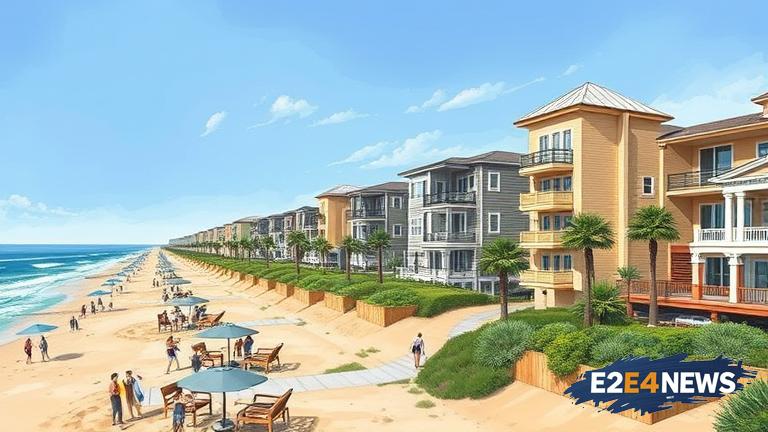The Del Mar City Council has been grappling with a contentious proposal to develop a mixed-income housing project on a beachfront property, with the aim of providing affordable housing options for low- and moderate-income families. The project, which would include a mix of market-rate and affordable units, has been met with intense opposition from some residents, who argue that it would exacerbate traffic and parking problems in the area. Proponents of the project, on the other hand, contend that it would help address the region’s severe affordable housing shortage and provide a unique opportunity for families to live in a desirable coastal community. The project’s developer has proposed a range of amenities, including a community center, park, and beach access, in an effort to mitigate concerns and win over support from the community. Despite these efforts, the project has become a lightning rod for controversy, with some residents expressing concerns about the potential impact on property values and the character of the neighborhood. Others have raised questions about the project’s financing and the potential for gentrification, which could displace existing low-income and minority residents. The Del Mar City Council has held numerous public hearings and workshops to discuss the project, with many residents turning out to express their opinions and concerns. While some have praised the project as a necessary step towards addressing the region’s affordable housing crisis, others have criticized it as a misguided effort that would ultimately harm the community. The project’s fate remains uncertain, with the City Council set to make a final decision in the coming months. As the debate continues, residents and stakeholders are weighing the potential benefits and drawbacks of the project, including its potential impact on the local economy, environment, and quality of life. The project’s developer has emphasized the importance of providing affordable housing options in a region where the median home price exceeds $1 million. However, opponents argue that the project’s location and design would be incompatible with the surrounding neighborhood, which is characterized by single-family homes and a strong sense of community. The controversy surrounding the project has also raised broader questions about the role of government in addressing the affordable housing crisis and the need for more inclusive and sustainable development practices. As the City Council considers the project’s fate, it must balance competing interests and priorities, including the need for affordable housing, the protection of environmental resources, and the preservation of community character. The project’s outcome will have significant implications for the future of Del Mar and the wider region, where the affordable housing crisis continues to worsen. In recent years, the San Diego region has experienced a severe shortage of affordable housing options, with many low- and moderate-income families forced to seek housing in distant suburbs or neighboring cities. The proposed project in Del Mar offers a rare opportunity to address this shortage and provide affordable housing options in a desirable coastal community. However, the project’s success will depend on its ability to balance competing interests and priorities, including the need for affordable housing, environmental protection, and community engagement. The Del Mar City Council must carefully consider the project’s potential impacts and ensure that it is designed and implemented in a way that benefits the community as a whole. This may involve incorporating additional amenities and features, such as community gardens, public art installations, and environmental mitigation measures. By taking a comprehensive and inclusive approach to the project’s development, the City Council can help ensure that it meets the needs of all stakeholders and contributes to a more sustainable and equitable future for the region. The controversy surrounding the project has also highlighted the need for more effective community engagement and participation in the planning process. Residents and stakeholders must be given a meaningful opportunity to shape the project’s design and implementation, and to ensure that their concerns and priorities are taken into account. This may involve the use of innovative community engagement strategies, such as participatory budgeting and collaborative planning processes. By working together and engaging in a constructive dialogue, residents, stakeholders, and city officials can help create a more inclusive and sustainable community that benefits everyone. The proposed project in Del Mar offers a unique opportunity to address the region’s affordable housing crisis and create a more equitable and sustainable community. However, its success will depend on the ability of stakeholders to work together and find common ground. As the City Council considers the project’s fate, it must prioritize community engagement, environmental protection, and social equity, and ensure that the project is designed and implemented in a way that benefits the community as a whole.
